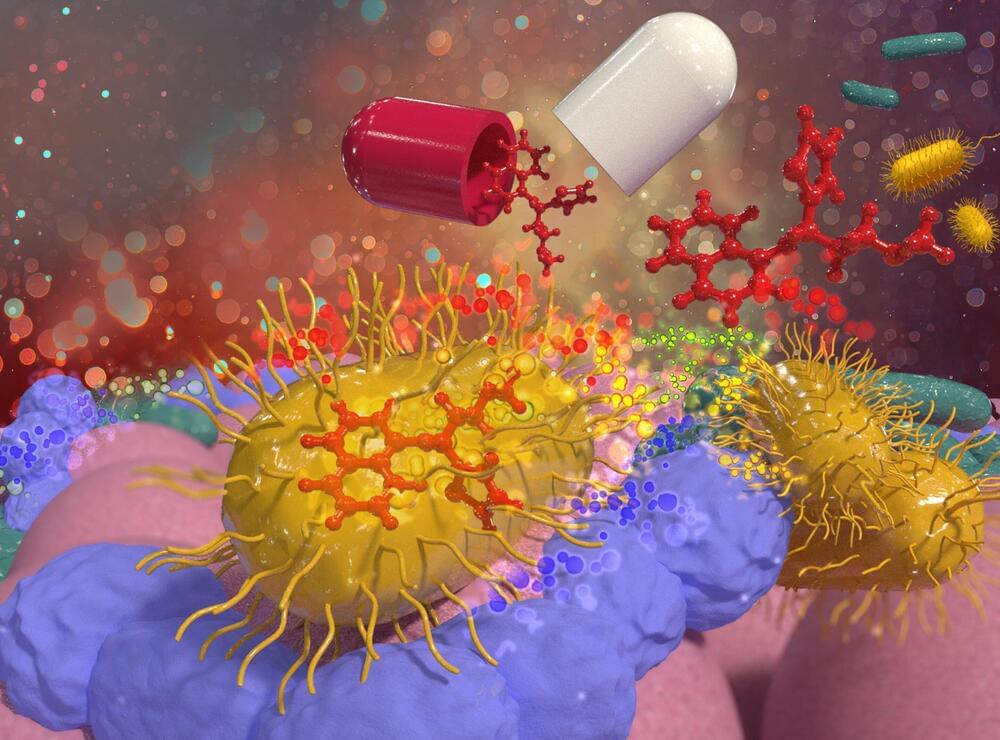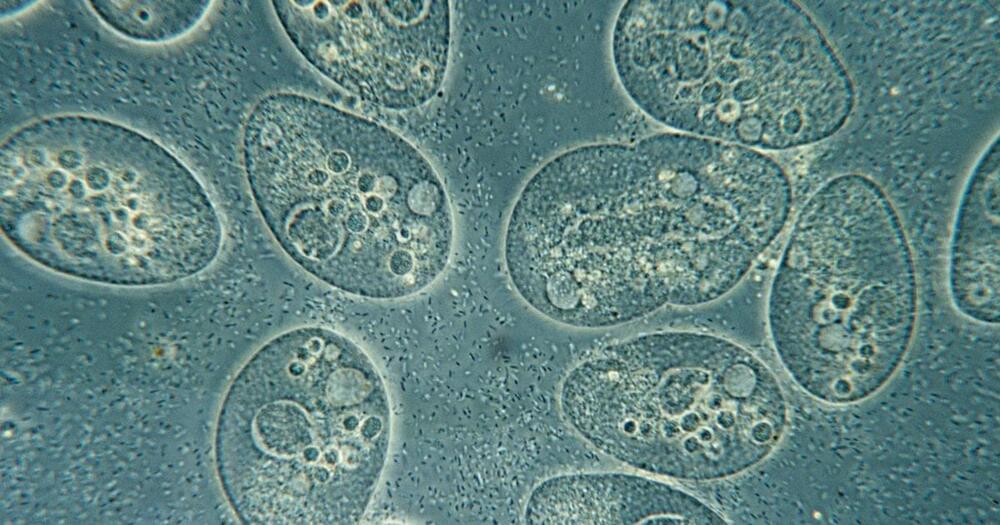Is this the gimmick of all gimmicks?
Circa 2020
The setup of lasers and mirrors effectively “solved” a problem far too complicated for even the largest traditional computer system.
Optical lattice clocks could help scientists detect gravitational waves, hunt for dark matter and much more.
Two physicists just snagged $3 million for helping develop a super-precise clock that could allow scientists to study and explore the universe like never before.
Summary: Researchers have identified 2,000 genes in humans linked to longevity. The genes are associated with biological mechanisms that drive the prolongation of life in mammals, including DNA repair, coagulation, and immune response.
Source: UPF Barcelona.
What determines the life expectancy of each species? This is a fundamental and highly complex question that has intrigued the field of research throughout history. From the evolutionary point of view, the major cause of these differences between species lies in their ecological adaptations. For example, life expectancy is longer in species adapted to living in trees, underground, or with large body mass, since all these adaptations reduce mortality by predation.
I recently set sail on Sunwater Marine’s Ramblin’ Rose, a 40-foot sailing yacht powered by solar panels and electric propulsion.
While we at Electrek often tend to focus on electric vehicles taking over roads, it’s important to remember that our inevitable abandonment of fossil fuels stems to all modes of transportation, whether it’s by land, air, or even the sea. I recently had the opportunity to set sail on Sunwater Marine’s Ramblin’ Rose, a 40-foot sailing yacht powered by solar panels and electric propulsion. It’s one of the only vessels of its kind on the West Coast.
It was founded by president James Richmond in 2,020 amid the global pandemic. Richmond had a little more free time to search for a boat for blue water cruising to which he could add solar.
A new interpretation of quantum mechanics sees agents as playing an active role in the creation of reality. Blake Stacey outlines the case for QBism and its radical potential.
The pandemic shut down our university when I was in the middle of giving a lecture. We had been anticipating the possibility for a few days, but it was still impeccable timing. I finished my spiel, out came the phones, and suddenly we weren’t going to see each other post-spring break after all. For the rest of the term, I did what so many teachers found themselves doing: gamely trying to soldier on. I scrounged and borrowed a whiteboard, easel and webcam, set myself up in the nicest light the house had to offer, and did my best to convey graduate-level physics to an audience of tiny rectangles. And like so many other teachers, I learned there’s nothing like a radical change of circumstances for driving one to re-evaluate what the essential ideas of a subject must be.
Common medications can accumulate in gut bacteria, a new study has found, altering bacterial function and potentially reducing the effectiveness of the drug. These interactions—seen for a variety of medications, such as depression, diabetes, and asthma drugs—could help researchers to better understand individual differences in drug effectiveness and side-effects, according to the study published in Nature.
It is known that bacteria can chemically modify some drugs, a process known as biotransformation. This study, led by researchers from the Medical Research Council (MRC) Toxicology Unit at the University of Cambridge and the European Molecular Biology Laboratory (EMBL) in Germany, is the first to show that certain species of gut bacteria accumulate human drugs, altering the types of bacteria and their activity.
This could change the effectiveness of the drug both directly, as the accumulation could reduce the availability of the drug to the body, and indirectly, as altered bacterial function and composition could be linked to side-effects.
An NYU-based research team created microscopic cells out of a polymer that can do active transport, a process all living cells do that is difficult to replicate.
All the way back in the 1940s, in Switzerland, work was underway on a breakthrough Bus that would be pure electric, and not need batteries. Introducing the Gyro-bus, a innovative look at storing energy in a flywheel! Mechanical Energy storage baby, and we’re doing a deep dive this week on Two Bit da Vinci!
》》》SUPPORT THE SHOW!《《《
Become a Patron! https://geni.us/TwoBitPatreon.
Become a Youtube Member! https://geni.us/TwoBitMember.
One Time Donation: https://geni.us/PaypalMe.
Use Our Tesla Products Link: https://geni.us/GoTesla.
Drone Quotes for Solar ⟫ https://geni.us/DroneQuote.
Two Bit da Vinci Merchandise ⟫ geni.us/TwoBitMerch.
Join OHM Connect & SAVE: https://geni.us/ohmConnect.
ALL of our Affiliate Links ⟫ https://www.twobitdavinci.com/links.
》》》COMPANY OUTREACH 《《《
Sponsor A Video! [email protected].
》》》CONNECT WITH US 《《《
Twitter 》 https://twitter.com/TwoBitDaVinci.
Facebook 》 https://www.facebook.com/twobitdavinci.
Instagram 》https://www.instagram.com/twobitdavinci/
This insane bus was pure ELECTRIC & didn’t need batteries.









